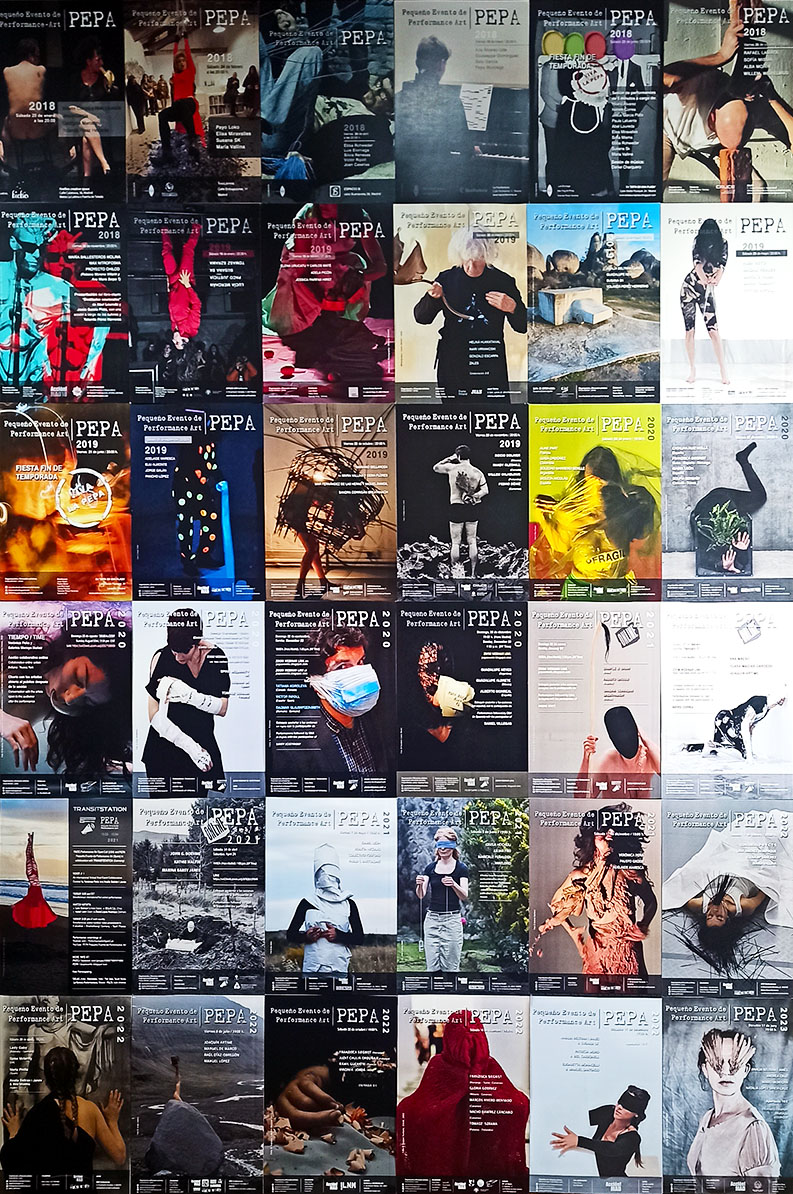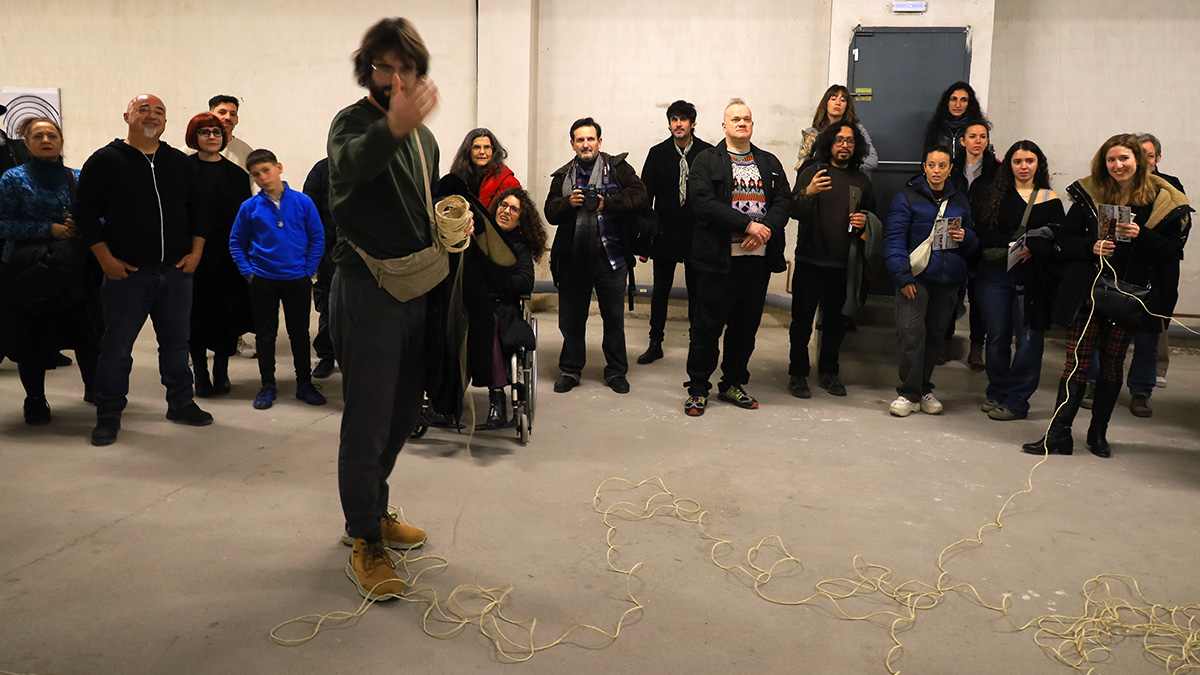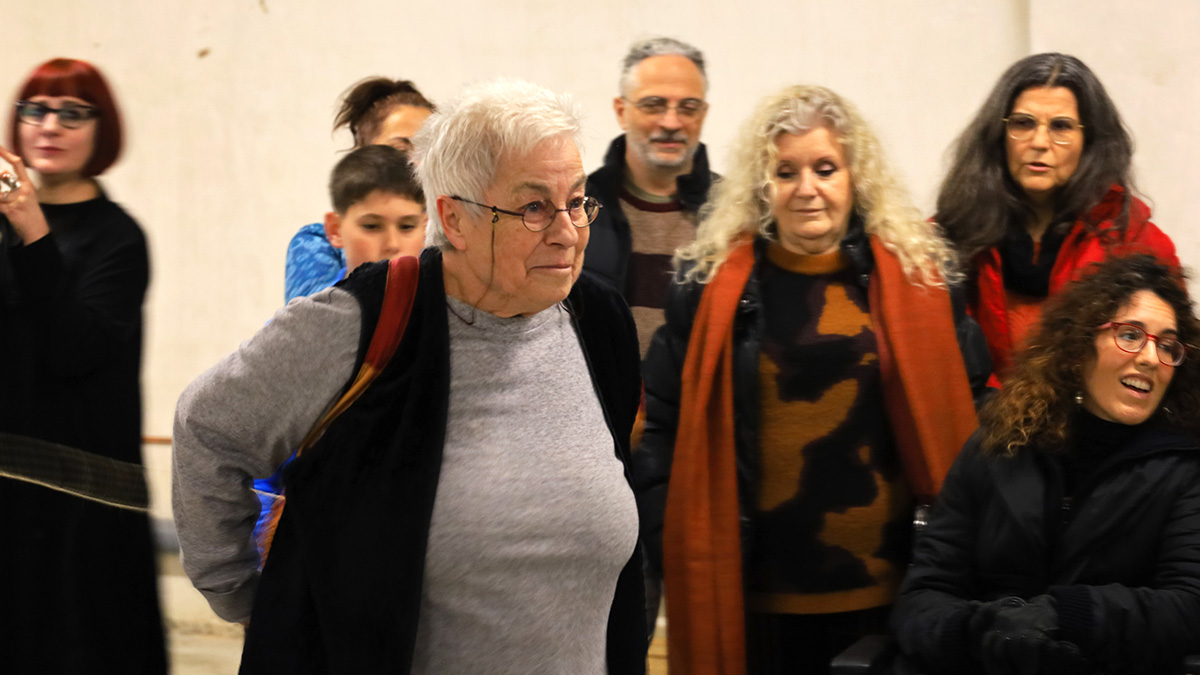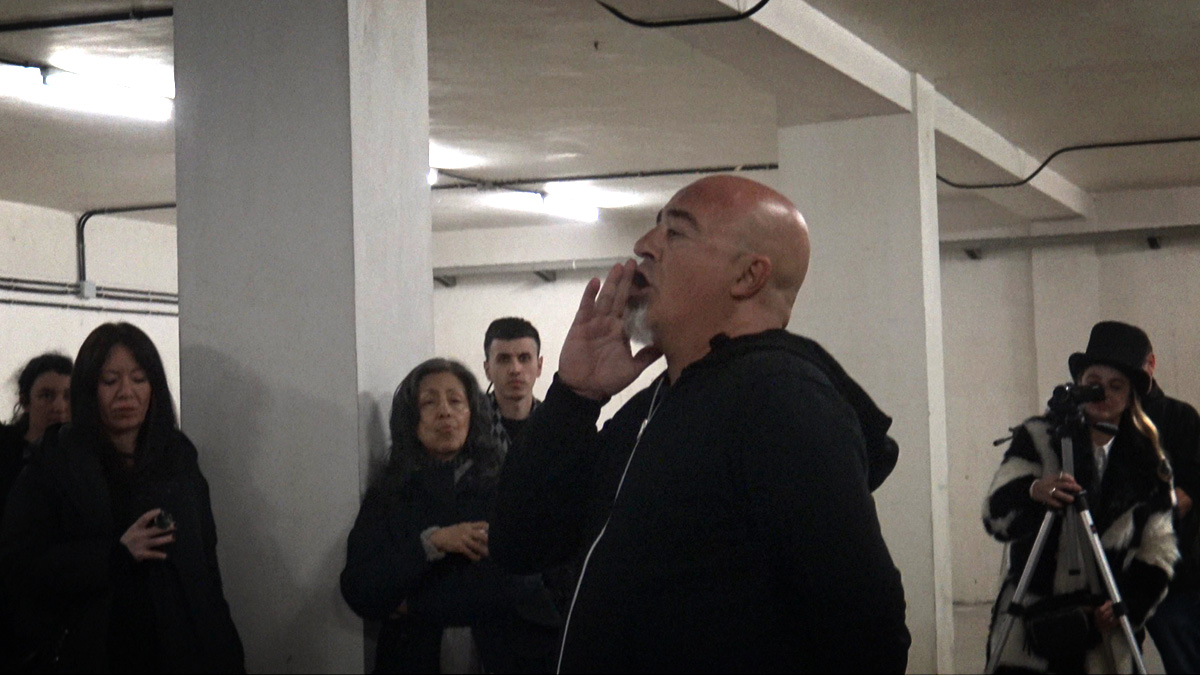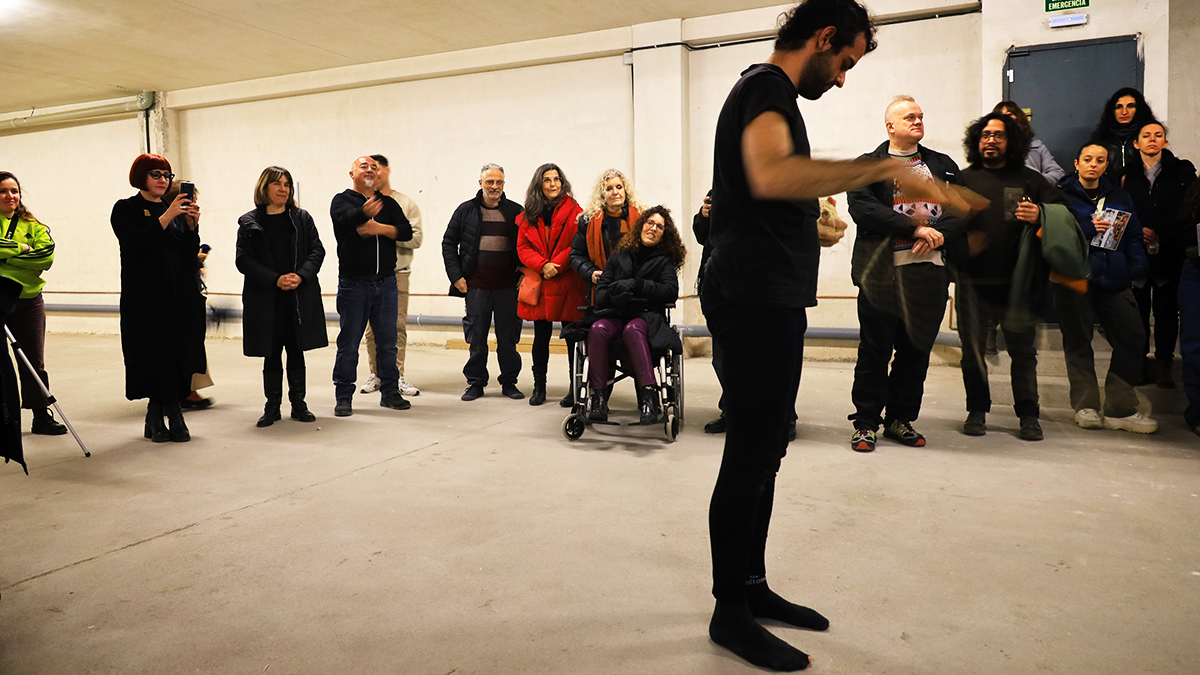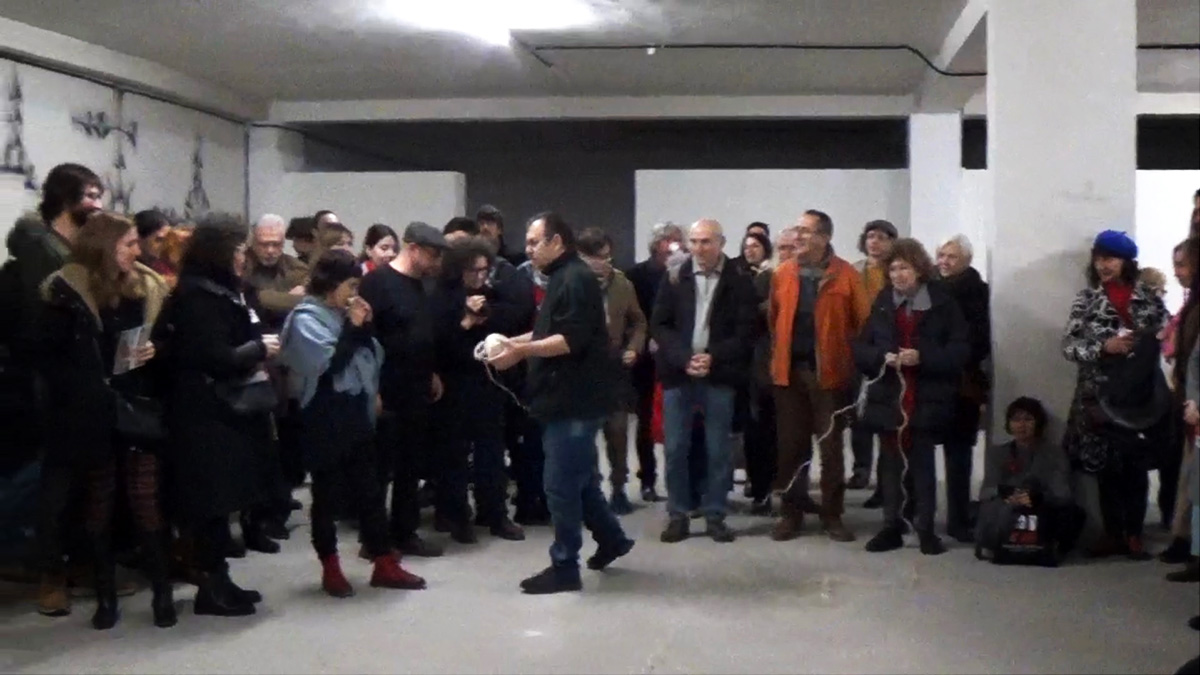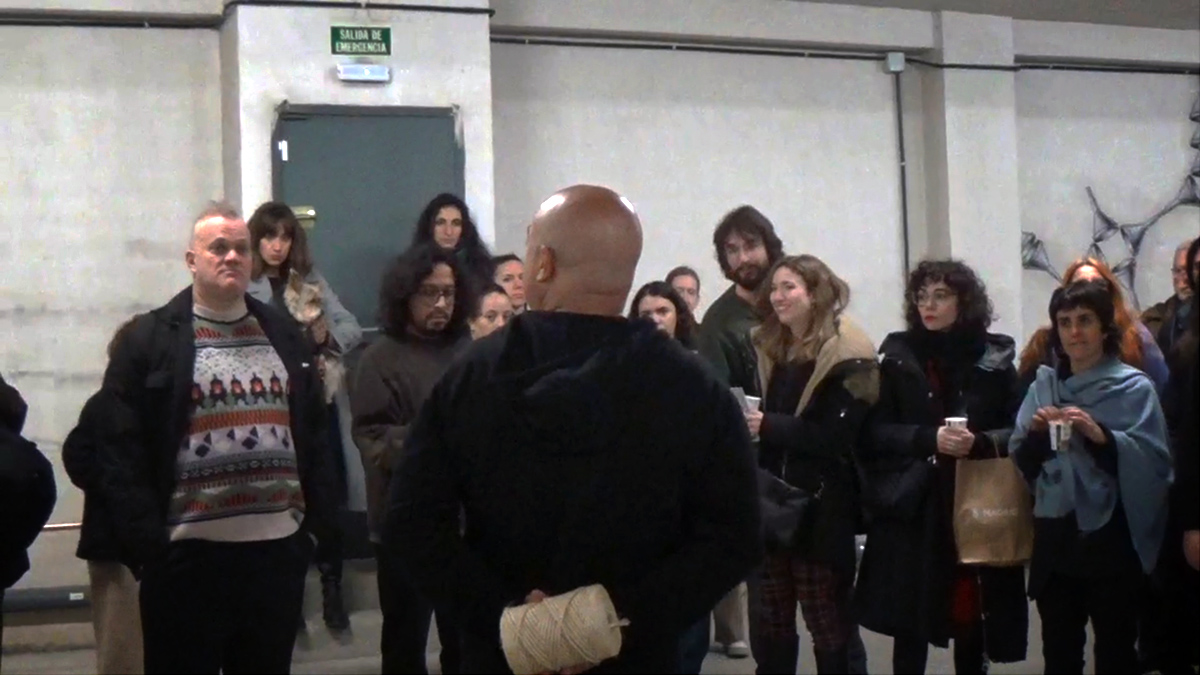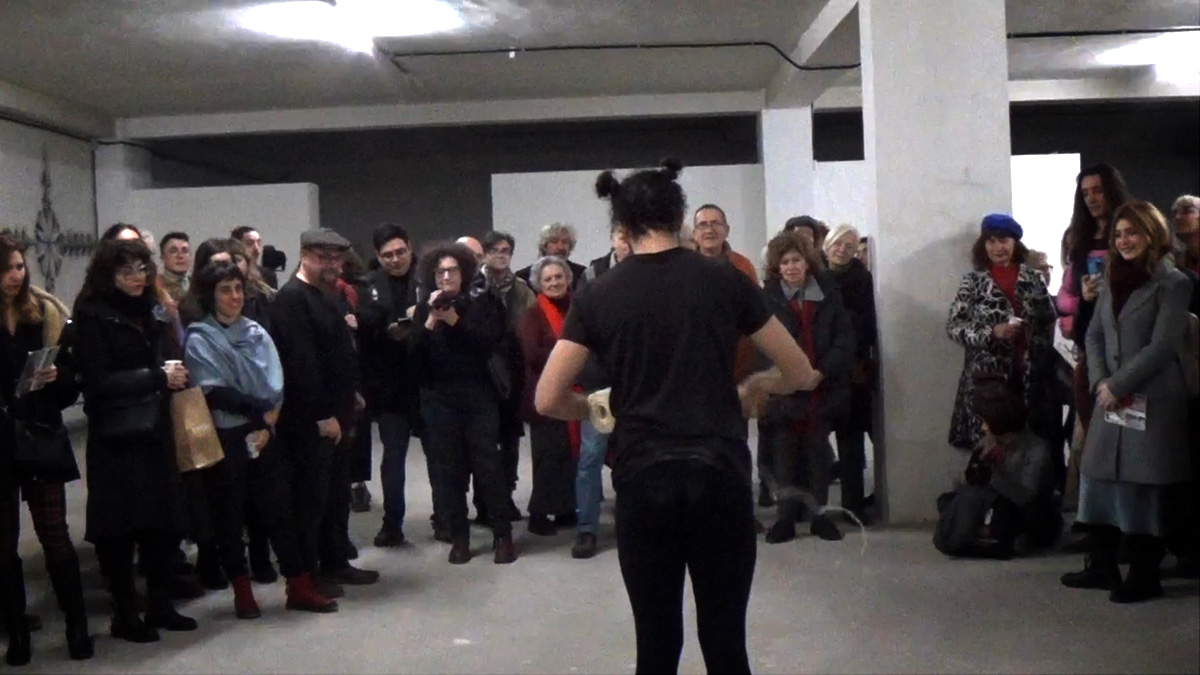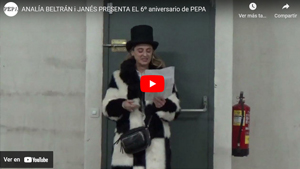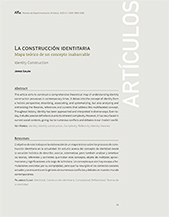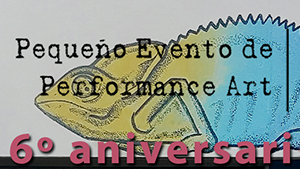WE ARE ALL JORGE GALÁN
January 2.024Performance at 6th Anniversary of P.E.P.A.
"A person's identity is not the name they have, the place where they were born, or the date they came into the world. A person's identity consists simply of being, and being cannot be denied." Jose Saramago
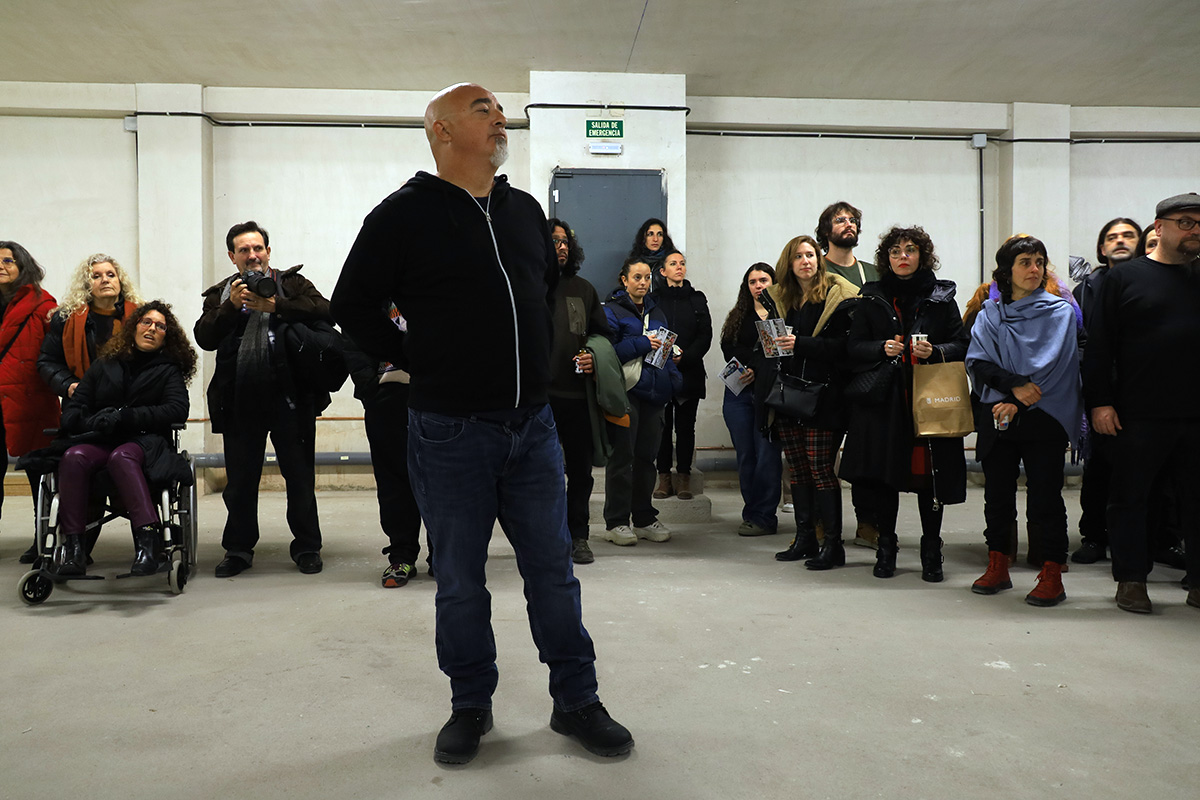
6th Anniversary of PEPA
P.E.P.A. Small Performance Art Event, is a performance meeting that was born by the artist Analía Beltrán i Janés with the aim of providing the public of Madrid with a continuous offer of action art. The first P.E.P.A. was held on January 20, 2018. Since then 36 events have been held, most of them in Madrid, but also at the Vostell Museum in Malpartida, Cáceres, in Biniamar (Mallorca) and in Las Palmas de Gran Canaria. With P.E.P.A. Different institutions have collaborated: The Vostell Museum, La Junta de Extremadura, Finnish Cultural Foundation, Cultura Ireland, Frame Finland, L'officina dell Arte, Observatory on the didactics of the Arts, RecuMadrid, Altrapo Lab, Prohelvetia Swiss Foundation for Culture , Canada Council for the Arts, Ajuntament de Biniamar, British Columbia Arts Council and non-profit associations such as ABM, Acción!MAD, CRUCE Art and thought, Museo La Neomudejar, La Piscifactoría, Espacio MT, Esta es una Plaza and Espacio B , among others. In these six years, 120 artists have participated, 45 of different nationalities: Finland, Norway, India, United States, Canada, Mexico, Colombia, Argentina, U.K., Ireland, Switzerland, Italy, Uruguay, Germany and the Dominican Republic. On this anniversary, artists gather under the cry of “Viva La Pepa” to perform short-term performances and celebrate these 6 years that are so important for the capital's performance scene.
We are all Jorge Galán
The proposal for the celebration of PEPA's 6th anniversary is a collaborative performance that reflects on personal identity and its social determinants, through a device that provokes the collective and spontaneous construction of the artistic action itself by the attendees, as an analogy to the construction of identity and its inherent social operation.
The device that serves as a trigger is a game of transferring my identity to a random individual in the audience, the first to interact with Jorge Galán's verbal quest. I hand over a coil of rope and disappear into the audience, ceding the lead role and the development of the action to the new Jorge Galán. Each new participant improvises his own transfer and uses the coil of rope in his own way. The artistic action, like the identity, is completed with the intervention of the other or others.
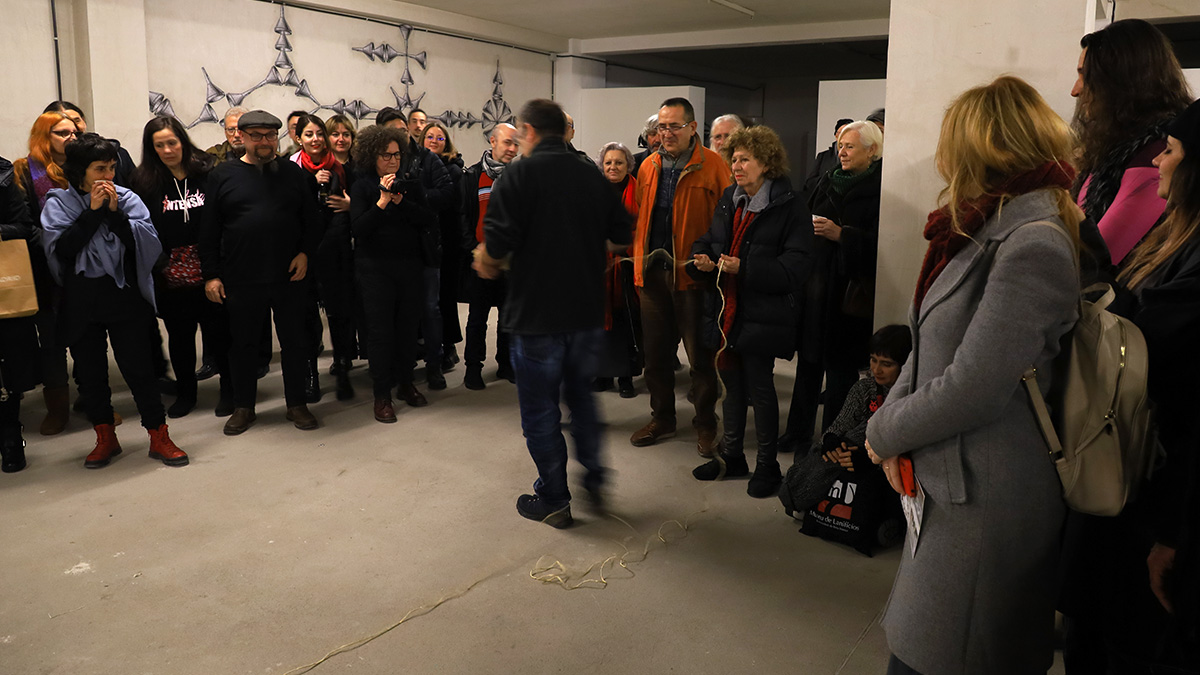
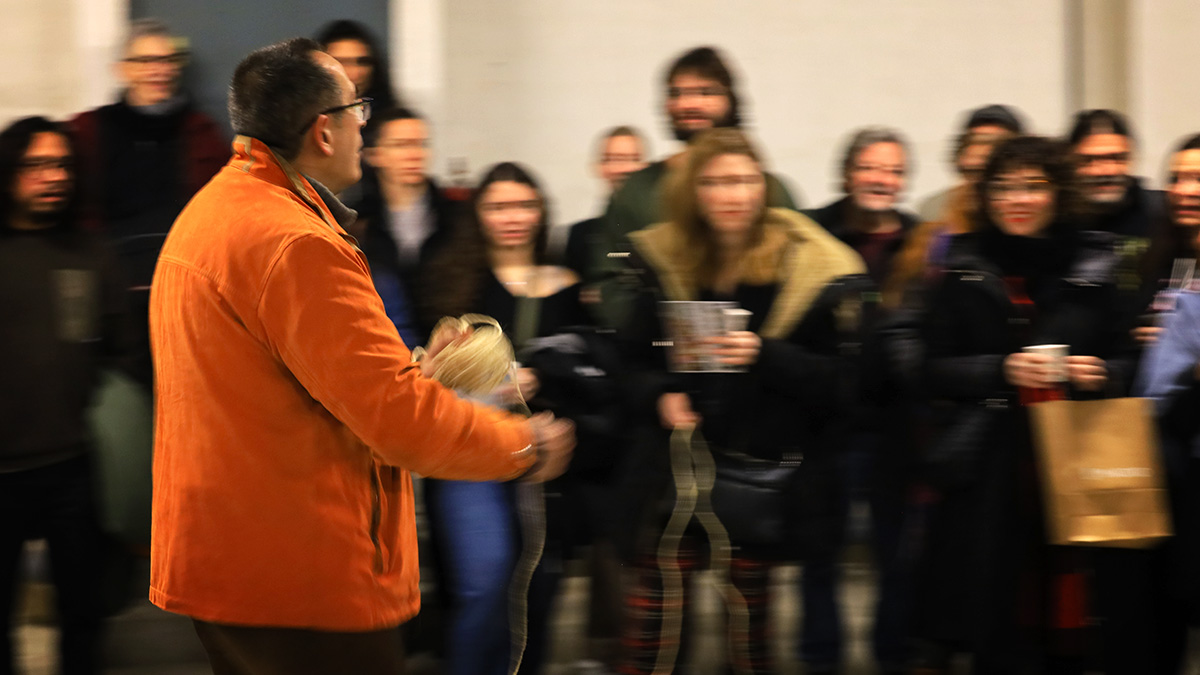
Identity construction
Since the Modern Age and rationalism, essentialist perspectives on the concept of identity have been questioned, and theoretical development has been generated from a different, existentialist perspective; it is criticized that identity only responds to pre-established conditions and the implication of the subject's experience is addressed as a determinant in its construction. Identity is constructed through social interaction, mutual recognition and the development of self-awareness. The dynamic and relational approach has been developed by numerous authors in recent decades; sociology and social psychology have made numerous contributions to the redefinitions of the concept of identity. Authors such as Stuart Hall, Georg Simmel, Zygmunt Bauman, Judith Butler, Nancy Fraser, among others, have made outstanding contributions in different ways.
The social determinant is not only inherent to the construction of identity, it also intervenes in the perception of reality, in behaviour, in the feelings and beliefs that articulate the sense of temporal continuity or life path. There are so many theories that describe these phenomena, highlighting the importance of interaction, the influence of labels and social roles, belonging to groups and discursive construction as a social and dynamic process. The implications that this has on the perception and management of information by individuals, as well as on the development of behaviour, have also been described. Identity is transformed and negotiated in the context of society.
Today, identity has been established as a differential concept that designates mobility, transformation, fluidity, change, choice, acceptance or diversity, among others, unlike past societies in which the construction of identities was strongly controlled by traditional institutions, such as family, religion, culture, the State or work.
